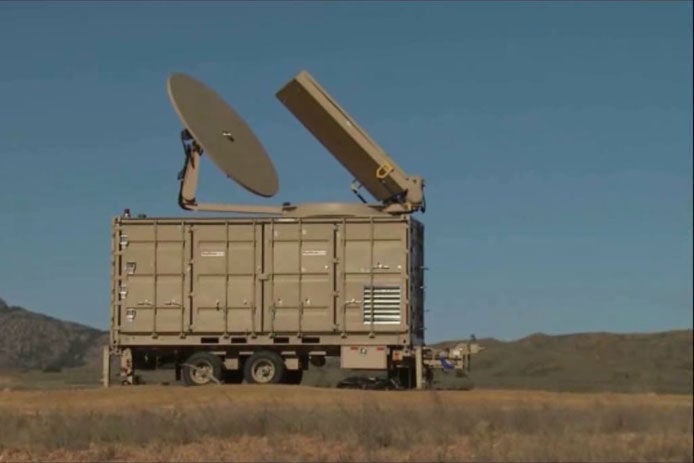In the wake of a major drone attack on Saudi Arabian oil facilities, the Air Force plans to field-test a high-power microwave system made by Tucson-based Raytheon Missile Systems for its ability to down hostile drones.
Under a $16.3 million Air Force contract announced Monday, Raytheon will produce one prototype of its High Power Microwave system by December 2020 for at least a year of field testing outside of the continental United States, the Defense Department and Raytheon said.
The contract follows a separate Air Force contract under which Raytheon will build two prototype high-energy laser systems designed to shoot down drones, also to be deployed overseas for testing.
Raytheon says its microwave system, which it calls PHASER, uses directed energy to disable drones and cause them to crash, with a wide beam to disable multiple targets at a time.
During a test for the U.S. Army in March 2018, Raytheon’s high-power microwave system downed 33 drones, including two and three at a time, while a Raytheon high-power laser system destroyed a dozen drones and shot down six mortar rounds.
“There’s more than one way to defeat a drone,” said Thomas Bussing, Raytheon vice president for advanced missile systems. “We are delivering the world’s first defensive directed energy systems that can be used alone or in tandem to defeat enemy drones at the speed of light.”
The sole-source contract for the high-power microwave system includes at least a year’s worth of in-field operation, operator training and data collection on mission availability, reliability, maintainability and sustainability, the Pentagon said in a contract notice.
In August, Raytheon Space and Airborne Systems, based in McKinney, Texas, was awarded a $23.8 million contract to build two prototype 50-kilowatt High Energy Laser Weapon Systems for overseas testing by the Air Force.
Northrop Grumman won a similar demonstration contract.
Amid increasing drone attacks overseas, Congress appropriated $900 million for counter-drone programs in fiscal 2019. The Pentagon has requested $500 million for fiscal 2020, according to the Center for the Study of the Drone at Bard College in New York.





